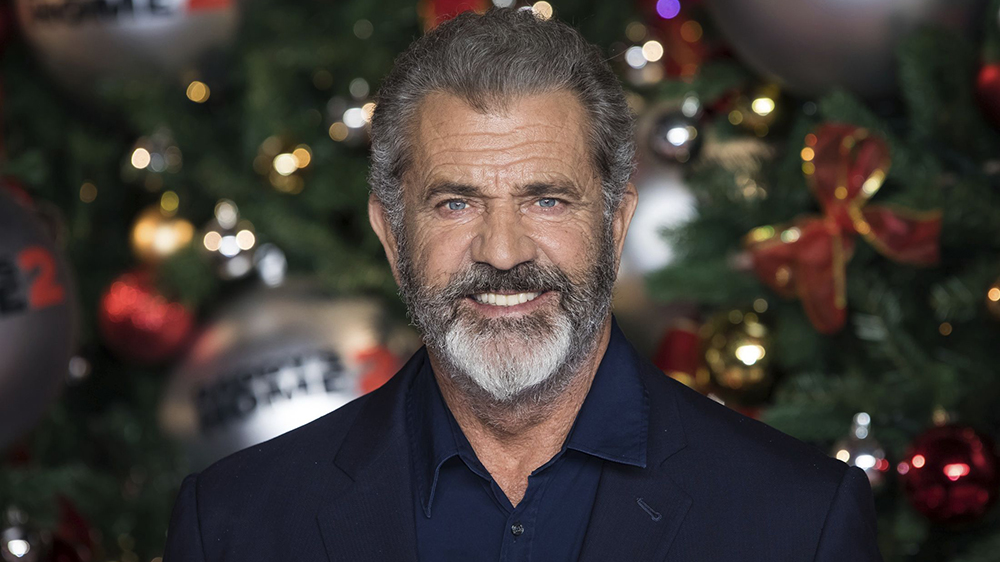Mel Gibson Accuses ‘Professor and the Madman’ Producer of Ireland Film Scam
By Gene Maddaus
LOS ANGELES (Variety.com) – Mel Gibson’s attorneys are accusing the producer of “The Professor and the Madman” of seeking to swindle Ireland’s tax authorities.
Gibson is engaged in a pitched legal battle with producer Voltage Pictures over the film, which tells the dark origin story of the Oxford English Dictionary. The director, Farhad Safinia, first accused Voltage in July of trying to inflate expenses on the film, which would result in a larger tax rebate from the Irish government.
Gibson, who co-produced and starred in the film as lexicographer James Murray, filed an answer to a cross-complaint on Wednesday, in which he joined in the accusation. Gibson’s attorneys allege that producer Zev Foreman offered a $1.3 million fee to Safinia, on the condition that Safinia then rebate $1 million to Voltage under the guise of buying a literary property.
“Mr. Foreman also indicated he had perpetrated similar fraudulent transactions in connection with Voltage’s production of films in the State of Louisiana to obtain tax credits there,” Gibson’s attorneys state.
The filing states that Warren Dern, Safinia’s lawyer, asked Foreman for a letter from a recognized law firm stating that such an arrangement would be legal. No such letter was provided. Safinia has previously said that he he rejected the deal. The new filing also asserts that Voltage made a similar offer to Vicki Christianson, the COO and CFO of Gibson’s company, Icon Productions. She also rejected it, the attorneys state.
Voltage’s attorney, Jeremiah Reynolds, previously said that the tax scam allegation was fabricated. Voltage declined to comment on the latest claims.
Gibson alleges that in retaliation for refusing to go along with the scheme, Voltage CEO Nicolas Chartier canceled plans to shoot essential scenes at the University of Oxford.
Chartier has said that the plan all along was to shoot the scenes at Trinity College in Dublin, and that at the last minute Safinia and Gibson insisted on relocating the shoot to Oxford, at a cost of $2.5 million. Chartier contends that the film was already behind schedule and $1.3 million over budget at that point. Gibson’s attorneys counter the Oxford scenes were always on the schedule, and that the film was not in fact over budget.
Gibson’s attorneys further allege that the “cost overruns” on the film were in fact “the result of sham transactions between Voltage and Christchurch, on the one hand, and companies owned by Mr. Chartier, on the other.” Gibson’s attorneys allege that $2 million in producer fees were paid to LLC’s registered in Nevada under the name Christian Solomon, who is described as Chartier’s “accomplice.” The alleged effect of such transactions, again, would be to boost expenses for the purposes of claiming a higher rebate from the government of Ireland.
Ireland provides a 32% credit on film expenses for productions that spend more than $307,000 there. A spokeswoman for Revenue, the Irish tax agency, previously declined to comment on the allegations, citing taxpayer confidentiality.
The film, which also stars Sean Penn as an asylum inmate, remains in limbo. In June, an L.A. Superior Court judge rejected Gibson’s bid to block Voltage from releasing it. But Gibson and Safinia, who have not worked on the film since early 2017, have also declined to promote it. Voltage says that in April, it was tentatively accepted at the Cannes Film Festival, but that Safinia and Gibson refused to show up in France. At that time, Gibson’s attorney sent a letter ordering Voltage not to use Gibson’s name and likeness in connection with the film.
Voltage has also noted that Gibson has not offered to return his acting fee, which, it alleges, was initially agreed to be $750,000. However, Voltage contends that once pre-production was well underway, Gibson demanded an increase to $2.5 million, which, according to Voltage, “was higher than any acting fee that Gibson had received in the last 10 years.” Having little choice at that point, Voltage agreed to the demand, according to its cross-complaint.
Gibson’s attorneys countered that Voltage “agreed to pay Mr. Gibson the same amount of money they agreed to pay Sean Penn.” Gibson “reneged on nothing,” the lawyers state.
Gibson’s lawyers also accuse Voltage of failing to turn over certain documents, and of trying to bury Gibson’s lawyers with thousands of pages of irrelevant discovery, including an entire edition of the Oxford English Dictionary.

